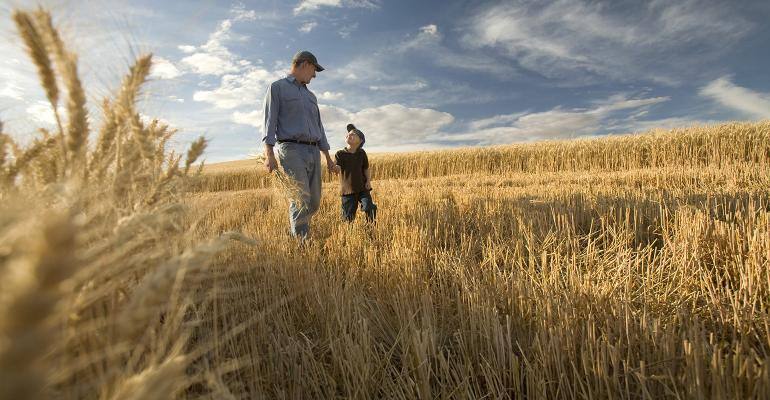Imagine if a foreign power blockaded the U.S. ports in the Gulf of Mexico. And, imagine if someone...
Promoting the Next Generation: Going from Farmer to CEO

In the world of dairy farming, formal titles are often overlooked. Ask a dairy farmer about their job title, and they’re likely to respond simply, “I’m a dairy farmer.” For many, especially those returning to family operations, titles are not assigned. Instead, as Wesley Tucker, a Field Specialist in Agricultural Business with the University of Missouri Extension, puts it, they start their farming life as soon as they can reach the clutch on a tractor or carry a feed bucket. Initially, they perform chores, essentially becoming grunts. As they grow older, they evolve into what Tucker calls “grunt level two”—taking on substantial responsibilities but not stepping into management until circumstances force them to assume a leadership role.
“The reality is, someone’s got to die before a promotion exists,” Tucker remarks, highlighting a common dilemma where even farmers in their mid-60s are not necessarily the ones making the final decisions on the farm. This slow-moving upward mobility underlines the critical need for effective succession planning in farming operations.
Succession Planning vs. Estate Planning
“Succession planning is a process,” Tucker emphasizes, contrasting it with estate planning, which he describes as an event. Tucker uses an analogy of a bucket to explain estate planning: it involves placing all assets—land, cows, facilities, equipment, tractors, planters—into a metaphorical bucket that stays full until the owner’s death, at which point it is upended, and everything changes hands.
Succession planning, conversely, is thoughtfully systematic. It begins with the same bucket but involves slowly transitioning some items to the next generation, allowing them to inherit responsibilities and ownership gradually without necessitating a death in the family. Starting with basic management duties, over time, the younger generation increasingly assumes control and ownership, easing both parties through the shift in roles and reducing disruptions.
Roadmap for Succession Planning
Gain Outside Experience
Building a successful farm business for future generations involves encouraging the younger members to gain experience elsewhere first. Tucker asserts, “I want every child to leave, gain additional skills, and bring those skills back to the operation.” He encourages young farmers to go to college, trade school, or work elsewhere to develop these skills and gain varied work experiences, including learning from both good and bad bosses.
Trial Work Period
Introducing a trial work period of one to five years is another critical strategy. This period allows families to gauge whether blending personal and professional relationships will work in the long term. Honest evaluations at the end of this period can help in making informed decisions about future roles within the family business.
Begin Management and Ownership in the Family Operation
Upon successfully completing the trial period, younger family members should be given ownership of specific aspects of the operation. This phase includes managing a segment of the farm to gain practical experience. Tucker emphasizes the importance of allowing them to earn or buy their way into these responsibilities, even if it requires innovative compensation plans.
Advance Management Ownership
At this advanced stage, transitioning control of financial management is essential. This includes holding relevant meetings and understanding the farm’s financial nuances. Control over the checkbook is often a significant milestone and a substantial step towards full ownership.
“I am really on a mission to help producers understand that the most important transition they will make is not from CEO to casket, but from CEO to that of an advisor or mentor to the next generation,” Tucker shares.
From Leader to Mentor
The ultimate goal for Tucker is for farm owners to transition from primary decision-makers to advisory roles. He believes that the sustainability and growth of family farms rely heavily on this transition.
“The key to a successful farm business that makes it to the third, fourth and fifth generation is I have to learn that I have to go from being the star quarterback calling all the shots to being that of a coach or a mentor to the next generation.”
EDITOR’S TAKE:
In any business, succession is always a difficult subject and can often lead to conflict if not handled appropriately. This article points out some of the pitfalls and provides some salient advice for passing the torch from one generation to the next. There are thousands of examples where the subject is not addressed and something happens to the owner, or a family member gets frustrated and leaves the business in a vulnerable position. The best approach is to bring the next generation into the business early in their career and lay out a succession plan that is acceptable to all parties. The plan should include timelines or checkpoints when certain events will transpire in the transition process. When decision making or financial responsibility will occur are two of the biggest decisions. And a word to the wise, many farmers/ranchers are older and are listed as the “owner”, but don’t always assume they are the sole decision maker. Make sure you appeal to all the parties involved in the operation by using various communication channels.








